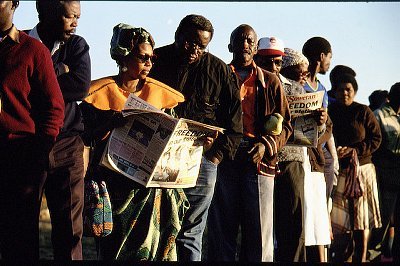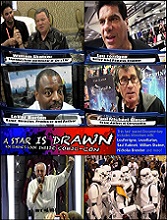Federal Communications Commissioner Michael Copps has managed the art of saying much in a few words. His latest salvo came in a 245-word letter to the editor in the Washington Post, in which he not only savaged yet another misbegotten Washington Post editorial about Internet policy, but also took on the Verizon-Google joint policy “recommendation” and then noted the cruel reality of the agency to which he has devoted almost nine years of his professional career.
He, and others, recognize that this is a unique time in the history of the FCC, and perhaps of regulation and politics. It happens from time to time in Congress that a legislator will vote against a bill that he or she has introduced, usually after an amendment has been added that drastically changes the bill, or in the case of some shift in the political dynamic.
Today’s situation is much different. It is normal for an FCC chairman to have to work from time to time, sometimes for tedious negotiations and edits with fellow commissioners, to gain a majority vote for an item the chairman wants. Now, however, two FCC commissioners of the chairman’s party are ready, willing and able to vote to approve an item proposed by the FCC Chairman, who is, in essence, his own swing vote.
But Copps keeps pushing, the sign of a leader who knows his policies and won’t back down. The Post‘s editorial endorsing the Verizon-Google deal “wrongly stated that a court decided the Federal Communications Commission has no authority over Internet service providers,” Copps wrote, while correctly saying that the April 6 court decision hinged on which section of the communications law were involved.
His conclusions in the letter were exceptionally strong:
The Verizon-Google plan that the Post endorsed creates a two-tiered Internet at the expense of the open Internet we now have, almost completely excludes wireless and transforms the FCC from what is supposed to be a consumer protection agency into an agent of big business. I thought we’d had enough of that. To expect big telecom and cable duopolies to protect consumers while a toothless agency stands quietly by is to expect what never was nor will be.
It takes a lot of guts to call your own agency “toothless,” but Copps has never lacked for guts, nor for leadership. His professional lineage comes through former Senate Commerce Committee Chairman Ernest “Fritz” Hollings of South Carolina, a crafty legislator who also was known for sticking to his guns.
In contrast to the current situation at the FCC, the Canadian Radio-Television and Telecommunications Commission (CRTC) has been moving ahead to help independent Internet Service Providers (ISPs) gain some access to network services.
In their order of Aug. 30, the CRTC gave ISPs more access to services than U.S.-based ISPs are able to get, thanks to years of FCC decisions aimed at shutting down those would-be competitors that don’t have their own networks — which includes most of them.
The CRTC order at the same time added a 10-percent markup to the rates to compensate the telephone and cable companies for their troubles. Unlike U.S. regulators, some of whom believe anything less than total control of networks by the telephone and cable companies will result in a financial disaster of epic proportions, the Canadian regulators were relatively sanguine about the wholesale access at guaranteed speeds, with the additional 10 percent taking care of any problems for the big telephone companies (ILECs — incumbent local exchange carriers).
Given the adjustment to the ILECs’ wholesale service rates for new higher speed service options, the Commission considers that a speed-matching requirement would not result in an undue disincentive for ILECs to continue to invest in fibre-to-the-node facilities. It also considers that, in light of its determinations in this decision, such a requirement would not unduly impair the ILECs’ abilities to offer new converged services such as IPTV (internet protocol TV).
As noteworthy as the order is, and the order shows how far ahead of the U.S. the Canadians are on competition, the separate statement of CRTC Commissioner Timothy Denton is even more enlightening.
Denton is a conservative who formerly represented ISPs before being appointed to the Commission on August 1, 2008. Remarkably, he was an attorney representing the Canadian Association of Internet Providers earlier in his career. In his dissent, Denton wrote eloquently about how the decision did not go far enough. Denton wrote that the ruling “neither eliminates them (ISPs) nor allows them the scope to compete effectively.” He would have allowed ISPs more control over the services in order to encourage innovations that come from smaller companies. Denton wrote:
Networks are not of the same order of thing as a metal-stamping business. They are affected with the public interest, which is merely to say that the reasons why they are subject to a measure of regulation under the Telecommunications Act are valid.
The Commission does not believe that innovation occurs only at the edges of the network. The right of carriers to innovate in network architectures is absolute, subject to the normal policy constraints of non-discrimination and non-self-preference. The question remains whether innovation from the edge will ever be allowed again, after the burst of innovation which accompanied the introduction of the Internet.
He is well worth reading for those who believe in a policy that strengthens competition, encourages innovation and promotes the welfare of consumers, the same policies for which Copps is striving.
Read more: Internet, Michael Copps, Canada, Net Neutrality, Federal Communications Commission, Technology News




